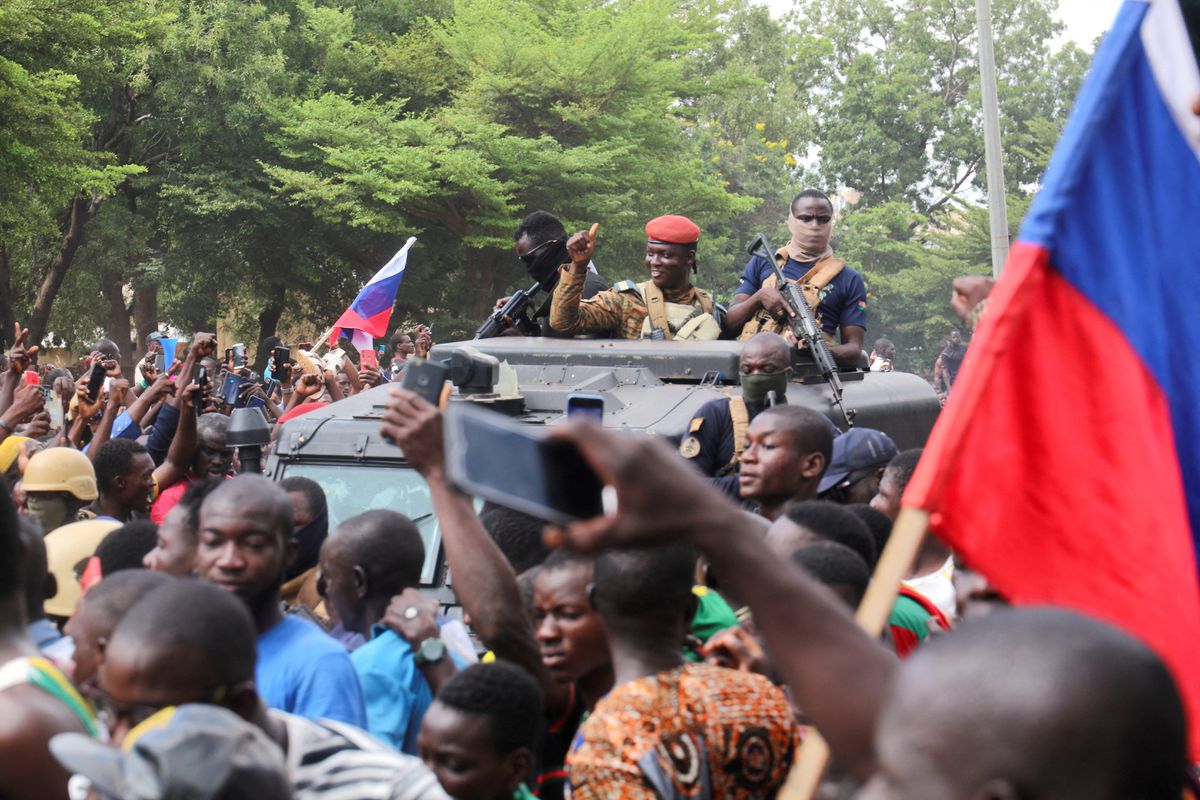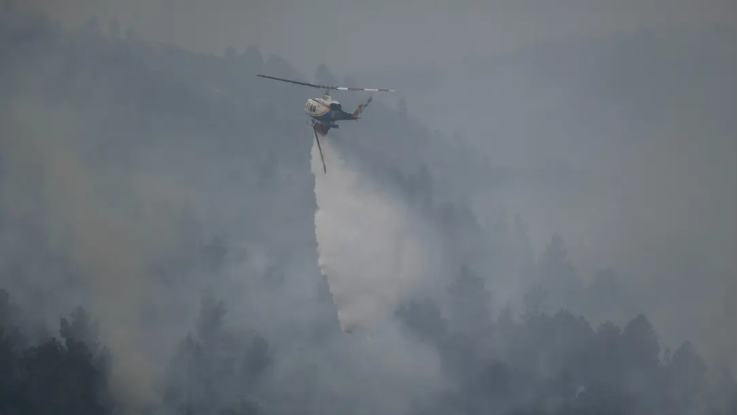Burkina Faso: Damiba Agrees to Resign After Coup
On Sunday, Lt. Col. Paul-Henri Damiba reportedly agreed to step down as Burkina Faso's interim president on conditions that include guaranteeing his safety and respecting the deadline to return to civilian rule within two years.

Facts
- On Sunday, Lt. Col. Paul-Henri Damiba reportedly agreed to step down as Burkina Faso's interim president on conditions that include guaranteeing his safety and respecting the deadline to return to civilian rule within two years.
- This comes after a faction of the Burkinabe military seized power in Burkina Faso on Friday and appointed Captain Ibrahim Traoré as the country's new president. His predecessor Damiba had himself come to power in a military coup in January after toppling former Pres. Roch Marc Christian Kaboré.
- The new self-declared military leader dissolved the government and the constitution, accusing former head of state Damiba of "betraying" the country by failing to quell attacks linked to militant extremists such as the Islamic State group (IS) and al-Qaeda, which instead continued to spread across the country.
- Meanwhile, the new leadership said the situation was back under control after protesters targeted the French embassy in Burkina Faso's capital, Ouagadougou, on Saturday. Traoré alleged Damiba was hiding in a French base to launch a "counteroffensive."
- In the wake of Burkina Faso's second coup this year, protesters called on the new leadership to cooperate with Russia in fighting the Islamist insurgency. While Traoré reportedly sees Damiba as an ally of Burkina Faso’s former colonizer France, the new leadership reportedly announced its willingness to approach "other partners."
- Meanwhile, France, the UN, the African Union (AU), and the Economic Community of West African States (ECOWAS) on Sunday condemned Burkina Faso's latest coup. Since 2015, thousands have been killed and some 2M displaced in the landlocked West African nation amid the region's spreading Islamist insurgency.
Sources: BBC News, NPR Online News, DW, France24, Politico, and Al Jazeera.
Narratives
- Establishment-critical narrative, as provided by World Socialist Web Site. The recent coup and protests in Burkina Faso are an expression of growing frustration in the country and throughout the Sahel over France's neocolonial ambitions under the guise of fighting terrorism. Only when Paris abandons its complicity with regional elites and its exploitative policies will truly independent African nations succeed in overcoming jihadist terrorism.
- Pro-establishment narrative, as provided by Foreign Policy. The coup in Burkina Faso is should be a serious concern for Western governments. Taking advantage of the growing anti-French sentiment in the Sahel region, Moscow is now also likely to try to gain a foothold in Burkina Faso with the help of its Wagner mercenaries. There is no doubt, however, that Russia's aim isn't to fight terrorism but to secure access to the natural resources of fragile African nations.
- Narrative C, as provided by Le Monde. Recent events in Burkina Faso are bad news on the road to a possible democratic transition. The renewed political instability is also likely to play into the hands of Islamists, thereby exacerbating the severe humanitarian situation. It should not be forgotten that Burkina Faso is dealing with one of the world's largest displacement crises, with security incidents up 220% compared to last year. This internal instability does not help.






